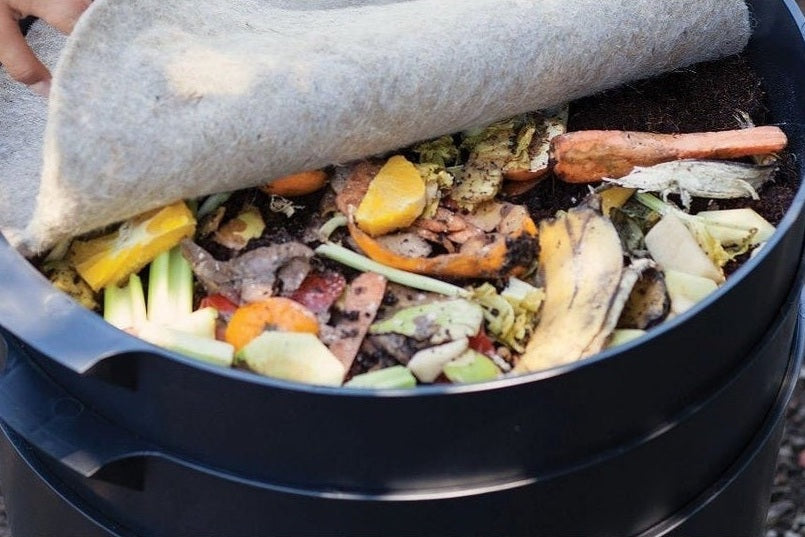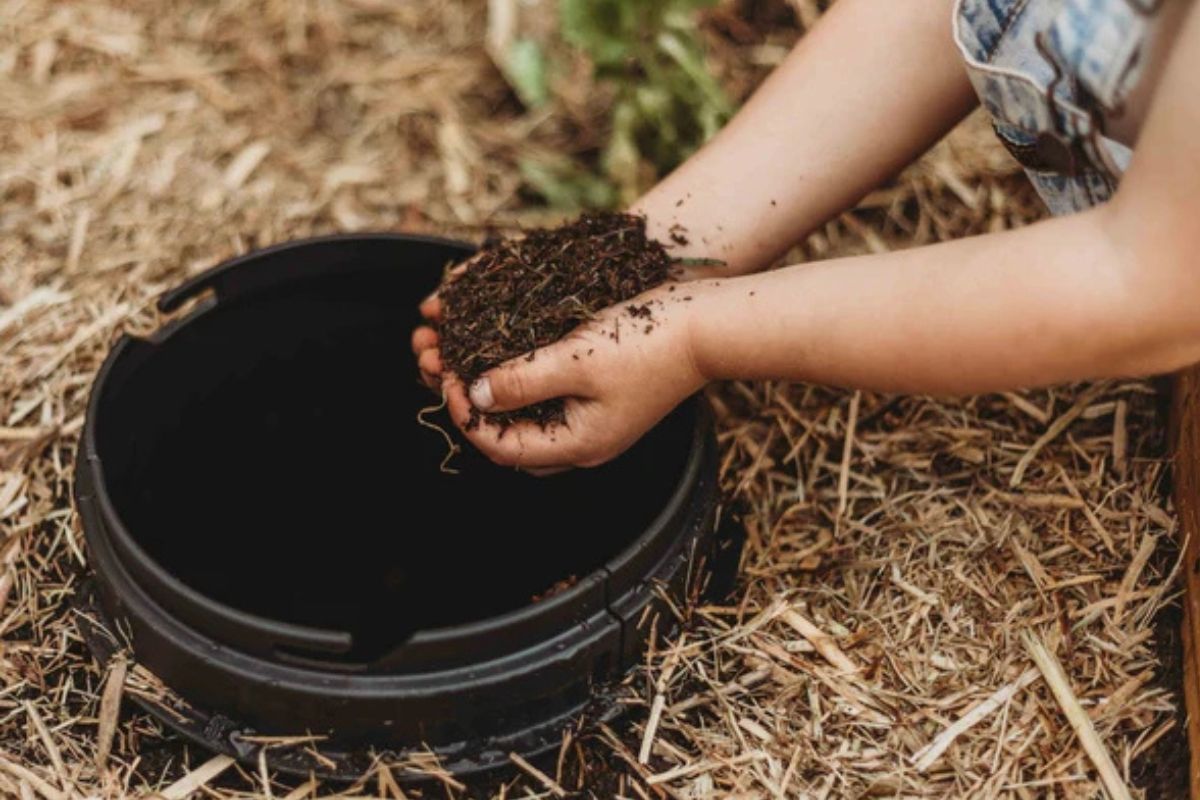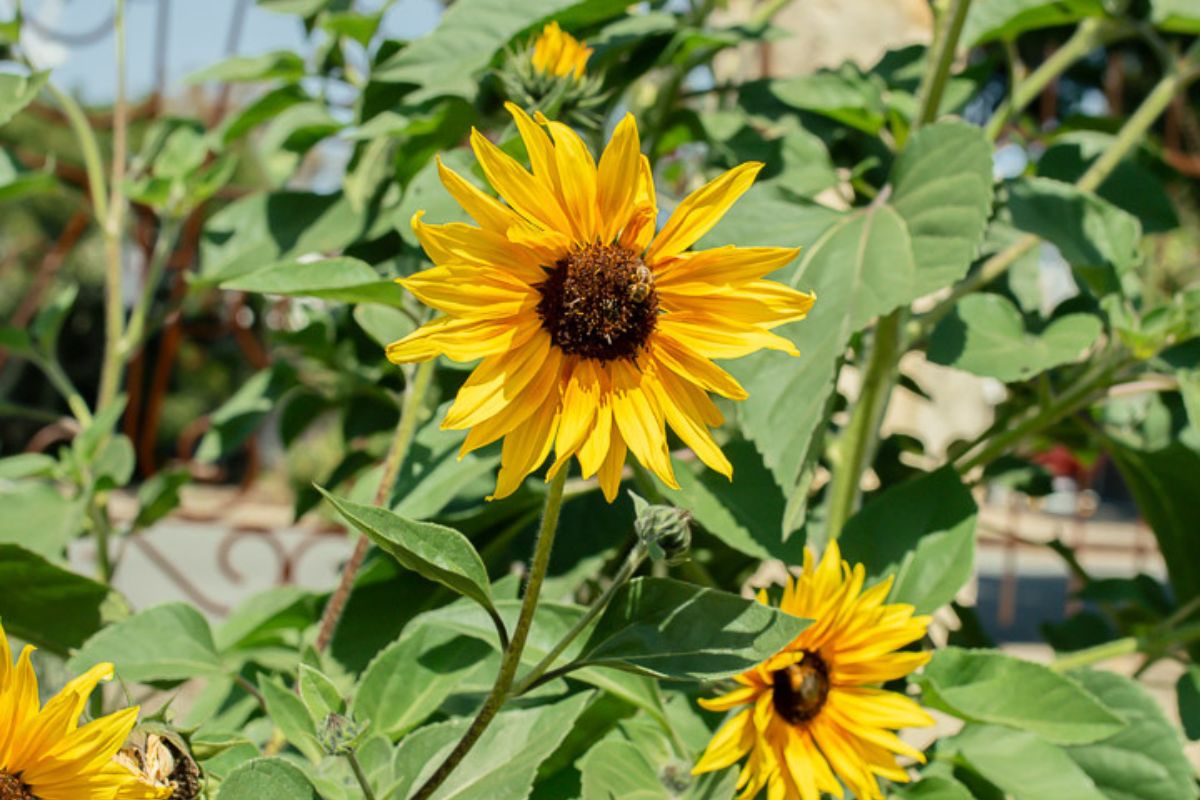For the average Australian household, at least half of what goes in our bins to be sent to landfill is compostable. This not only creates tonnes of extra waste but also directly causes greenhouse gas emissions. You may be surprised to learn that food waste in Australian landfills creates the same amount of greenhouse gas emissions as our entire aviation industry, or our steel and iron ore industries combined.
At Urban Revolution, we believe that composting is the number one positive climate change action every household should be doing. In this article we'll tell you why.
You can also check out our article on The Easiest Way To Compost At Home: the Bokashi Kitchen Compost System.
1. Composting Returns Carbon To The Earth and Recycles Nutrients
Composting is the natural recycling process of organic matter. Almost all materials that aren't petroleum (plastic) based naturally have the ability to break down into soil where their nutrients, primarily carbon, can be stored and reused by healthy soil organisms.

2. Composting Prevents Greenhouse Gas Production
Organic waste sent to landfill does not receive the right conditions to be able to break down and compost properly, resulting in it decomposing and releasing one of the most harmful greenhouse gases, methane, along with carbon dioxide into the atmosphere - a huge contributor to anthropogenic (man-made) climate change.
For organic matter to be able to break down and compost properly, it requires the right balance of nutrients and microbes as well as air and moisture - it is an aerobic process. Unfortunately, this means that organic waste in landfills cannot compost properly and instead decomposes anaerobically, releasing carbon into the atmosphere primarily in the form of methane - a greenhouse gas 72 times more damaging than carbon dioxide over a 20 year period.

Image from DM Online
For this reason, composting your organic waste actually prevents greenhouse gas production. But that's not all...
3. Composting Helps Soil Sequester Carbon From The Atmosphere
Yep, composting organic waste not only prevents it from producing greenhouse gases in landfill, but it also actively removes carbon from the atmosphere!
More than twice as much carbon is stored in the Earth's soil as is stored in all living vegetation and the atmosphere combined. Healthy soil actually has the ability to pull in, or sequester, carbon from the atmosphere and convert it to organic carbon stored in the Earth where it is a valuable nutrient in soil ecosystems.
The problem of climate change has arisen because humans have disrupted the natural cycle of carbon returning to the Earth. Through burning fossil fuels, depleting soil health through unsustainable agriculture, and mismanaging our waste we have been releasing carbon into our atmosphere at an increasingly dangerous rate. It is time for us to help the Earth restore balance by bringing that carbon back down into the soil where it belongs. The good news is that applying composted organic matter to soil is one of the most effective ways to restore it's health and capacity to once again sequester and store carbon from the atmosphere. See how this works in this awesome video:
Composting really is one of the best ways to actively reverse climate change and is something that every one of us can do.
If you'd like a quick, easy way to get started (that doesn't require a back yard), see our article on The Easiest Way To Compost At Home, or sign up to our mailing list to receive our soon-to-be-released free Beginner's Guide To Composting.
References and Further Reading
- Article on The Easiest Way To Compost At Home
- Article on Organic, Biodynamic and Regenerative Agriculture
- Podcast by Plant Proof: Regenerative agriculture with Ryland Engelhart and Finian Makepeace
- https://turningearthllc.com/what-we-do-2/compost-and-soil-amendments/composting-and-climate-change/
- http://www.healthysoils.com.au/carbon
- https://nourishmagazine.com.au/earth/compost-climate-change
- https://www.britannica.com/technology/carbon-sequestration







Leave a comment (all fields required)